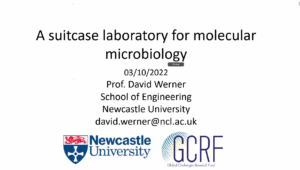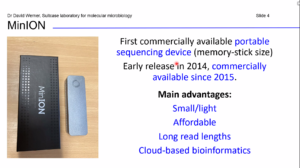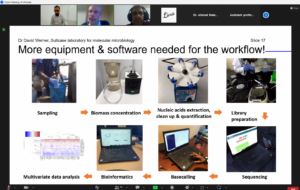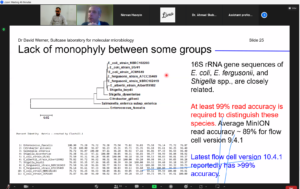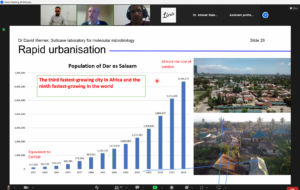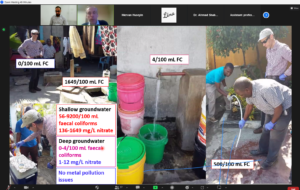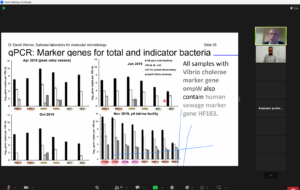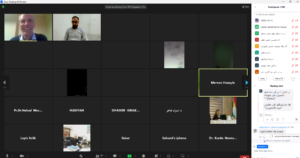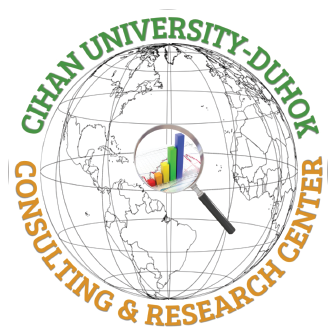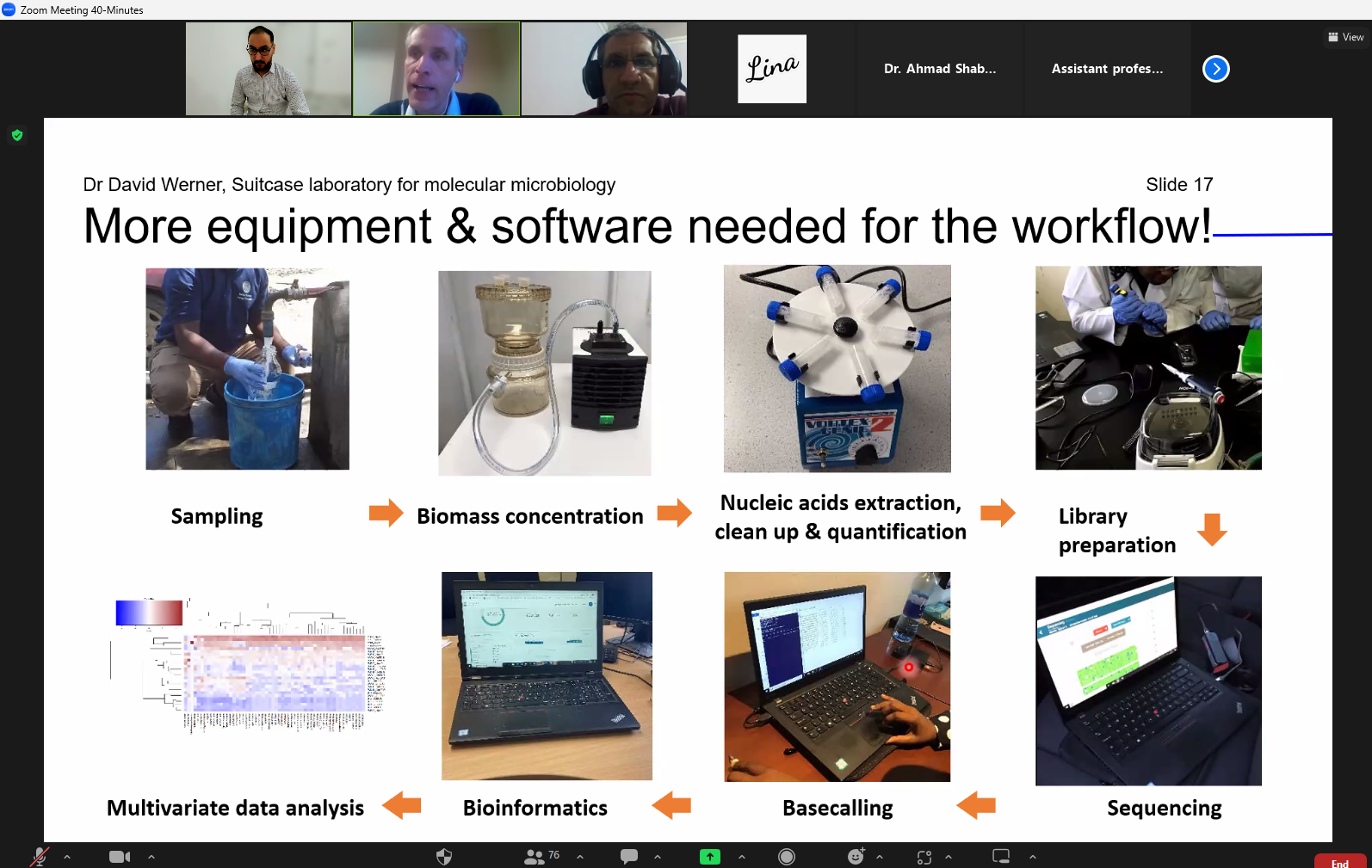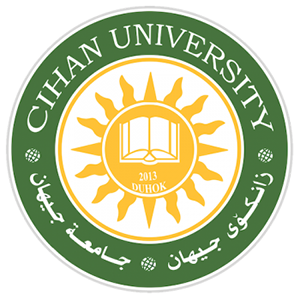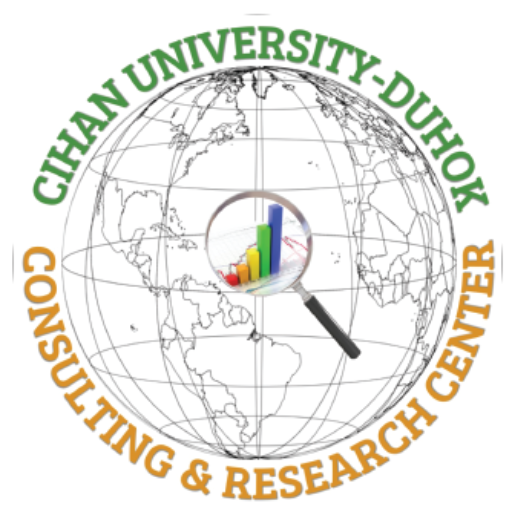On Tuesday, 11/04/2023, the Research Center at Cihan University – Duhok held an international webinar by Zoom platform entitled “A suitcase laboratory for molecular microbiology“.
🎙️Hosted by the speaker:
🎙️ Key speaker:
📌 Prof. Dr. David Warner, is a professor of environmental systems modeling at Newcastle University, UK.
🎙️ Session management:
📌 Dr. Mervan Yousif Huseyin , a lecturer in department of medical laboratory at our university.
Session Summary:
Including 3-4 bullet points outlining what the audience can expect to learn.
We describe the technical feasibility of bacterial community characterization to study infectious disease transmission pathways via analysis of environmental DNA, using only portable equipment items. To this end, we assembled a suitcase laboratory which includes the memory-stick-sized MinION sequencing device of Oxford Nanopore Technologies, and all the equipment items needed for the biomass concentration, DNA extraction, purification, quantification, gene amplification, and sequencing library preparation. At a sewage treatment plant in the UK, and at the Addis Ababa Water and Sewerage Authority in Ethiopia, the 16S rRNA gene sequencing workflow, including sampling, DNA extraction, PCR amplification, library preparation, and sequencing, was accomplished within one working day. The taxonomic data became available within 24–72 h, depending on internet speed. We also deployed the suitcase laboratory in Tanzania to study impacts of pit latrines on bacterial hazards in shallow and deep groundwater below an informal settlement. The observations of genetic markers in pit latrine sludge suggested 5 % asymptomatic Vibrio cholerae carriers amongst pit latrine users. We also found strong association of genetic markers for Vibrio cholerae and human sewage in groundwater. In the UK we used the suitcase laboratory for faecal pollution source tracking with a lab in the back of a van to study bacterial hazards in recreational waters. Our field deployable toolbox advances the capability of scientists to comprehensively monitor microbiomes and associated waterborne hazards anywhere in the world.
Bullet points:
• A suitcase laboratory for molecular microbiology
• Equipment items and costs
• Validation with known DNA standards and conventional
laboratory methods
• Faecal pollution source tracking and quantitative microbial risk
assessment applications
• Case studies from Ethiopia, Tanzania, and the UK.
